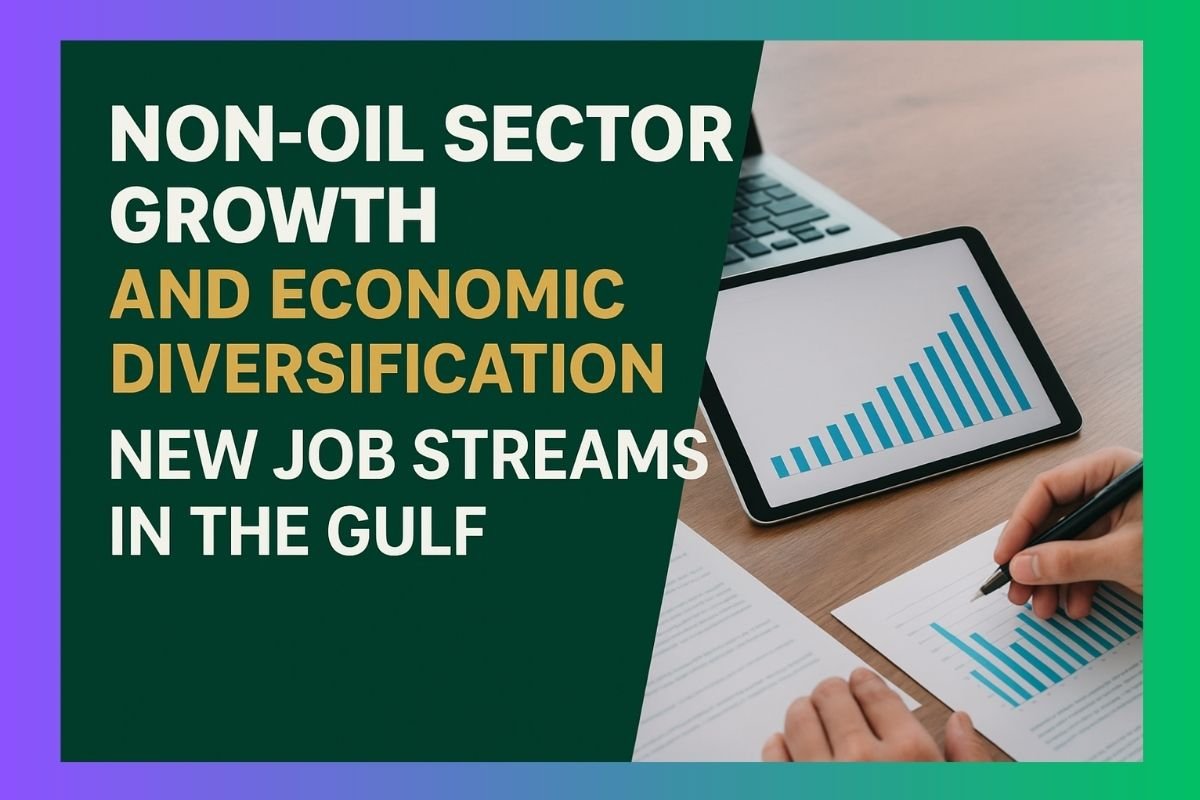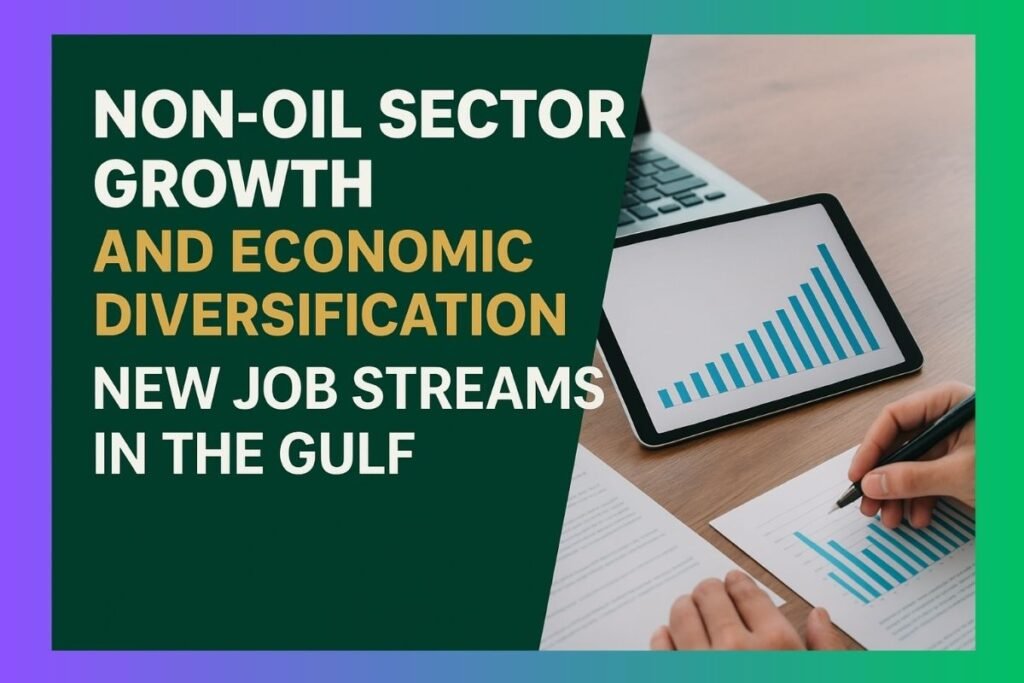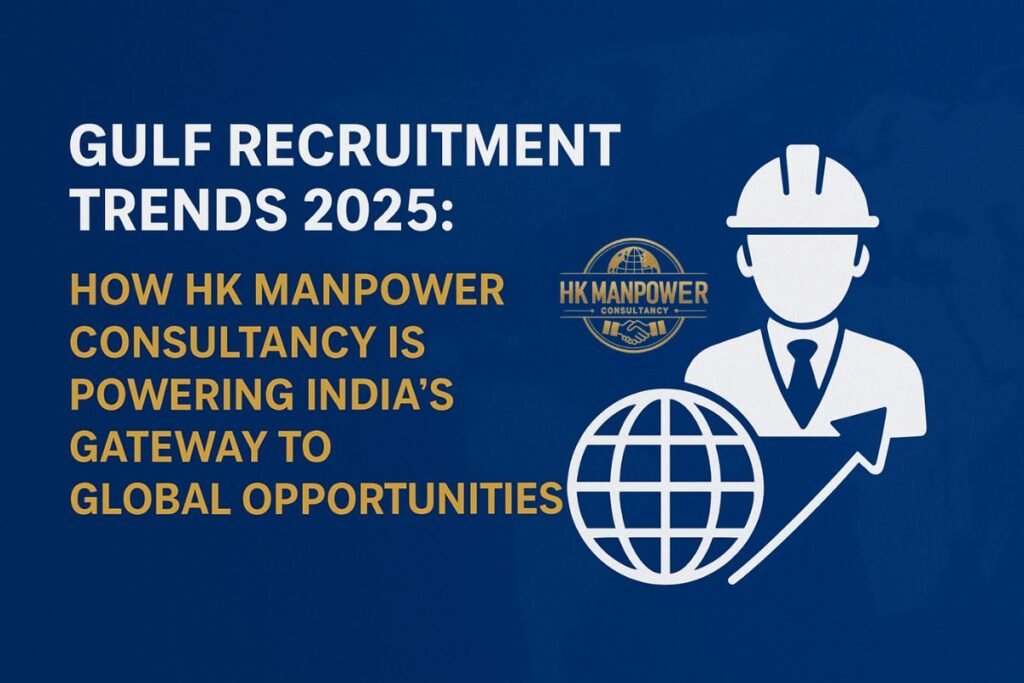For decades, the Gulf Cooperation Council (GCC) countries have been known for their oil wealth and energy exports. But in recent years, these nations have made a major shift toward building diverse, sustainable economies that can thrive beyond the oil industry. This transformation is not only reshaping their economies but also creating a wide range of new job opportunities for both local and international workers.
The Shift from Oil Dependency
Countries like Saudi Arabia, the United Arab Emirates, Qatar, Oman, Kuwait, and Bahrain have long recognized the risks of relying heavily on oil revenue. The global energy transition, fluctuating oil prices, and the rise of clean energy have pushed governments to rethink their economic strategies.
As a result, national plans such as Saudi Vision 2030, UAE Vision 2021, and Qatar National Vision 2030 have placed diversification at the heart of their economic policies. These initiatives aim to boost non-oil sectors such as tourism, construction, logistics, renewable energy, healthcare, education, and technology.
This shift is opening the door to millions of new jobs that require a mix of traditional skills and modern expertise.
Emerging Job Sectors in the Gulf
The Gulf region is witnessing massive growth in several industries that were once considered secondary. Today, they stand as key drivers of economic progress and employment.
1. Tourism and Hospitality
The tourism industry has become one of the fastest-growing non-oil sectors in the GCC. Mega-projects such as NEOM and The Red Sea Project in Saudi Arabia, Expo City Dubai, and Qatar’s post-World Cup tourism expansion are generating a surge in demand for hospitality professionals, event managers, travel consultants, and culinary experts.
2. Construction and Infrastructure
As part of diversification, governments are investing heavily in new cities, transport systems, and smart infrastructure. This has created high demand for engineers, project managers, technicians, and skilled workers. The construction boom continues to be a major source of employment for expatriate workers, especially from India and South Asia.
3. Renewable Energy and Sustainability
Gulf countries are investing billions in renewable energy projects to reduce carbon emissions and secure long-term sustainability. Solar and wind energy initiatives, particularly in Saudi Arabia and the UAE, are creating opportunities for engineers, energy analysts, and environmental specialists.
4. Technology and Innovation
Digital transformation has become a top priority across the GCC. Governments and private sectors are investing in artificial intelligence, cybersecurity, fintech, and data analytics. This growing ecosystem is creating demand for software developers, IT engineers, and digital marketing professionals.
5. Healthcare and Education
The pandemic highlighted the importance of a strong healthcare system and skilled medical professionals. The Gulf is now investing in world-class hospitals and training institutions. Similarly, educational reforms are leading to more opportunities for teachers, trainers, and academic administrators.
How This Growth Benefits Job Seekers
For job seekers, especially from countries like India, these developments present a golden opportunity. The diversification of the Gulf economy means that there is now demand for both white-collar professionals and blue-collar skilled workers.
From construction workers and machine operators to engineers, accountants, and hospitality staff, there is a continuous need for qualified and motivated talent. Indian workers have long been a trusted part of the Gulf workforce, and this new wave of diversification only strengthens that bond.
The Role of Trusted Recruitment Agencies
With so many new industries opening up, finding the right opportunity can be challenging for candidates. That is where trusted recruitment partners like HK Manpower Consultancy come in.
With over 20 years of experience in providing skilled manpower to the Gulf region, HK Manpower Consultancy has helped thousands of job seekers secure safe and rewarding overseas employment. The company ensures that every placement is legal, transparent, and in line with the client’s needs and the candidate’s expertise.
Whether it’s technicians for Saudi Arabia, engineers for Qatar, or hospitality professionals for Dubai, HK Manpower Consultancy connects skilled Indian talent with reputable employers across the Gulf.
The Future of Work in the Gulf
The Gulf’s shift toward a diversified economy is more than just an economic adjustment—it is a long-term transformation. As these countries continue to reduce their dependency on oil, the non-oil sectors will remain the backbone of future job creation.
For workers and professionals, this means now is the time to explore opportunities, upskill, and adapt to new industries. Those who prepare for the evolving job market will find tremendous opportunities to build rewarding and stable careers in the Gulf region.
Conclusion
The Gulf region is no longer defined solely by oil. The rise of non-oil industries is fueling innovation, growth, and a new era of employment. From renewable energy to hospitality, the Gulf is opening doors for millions of workers worldwide.
For job seekers in India and beyond, this is the perfect time to look toward the Gulf not just as a destination for work, but as a region of opportunity and progress.
To apply for the latest Gulf job openings, register at https://forms.gle/P1HxKwnxsXYzm6Yy5 or visit www.hkmanpowerconsultancy.com. For more information, contact +91 98205 66526.





